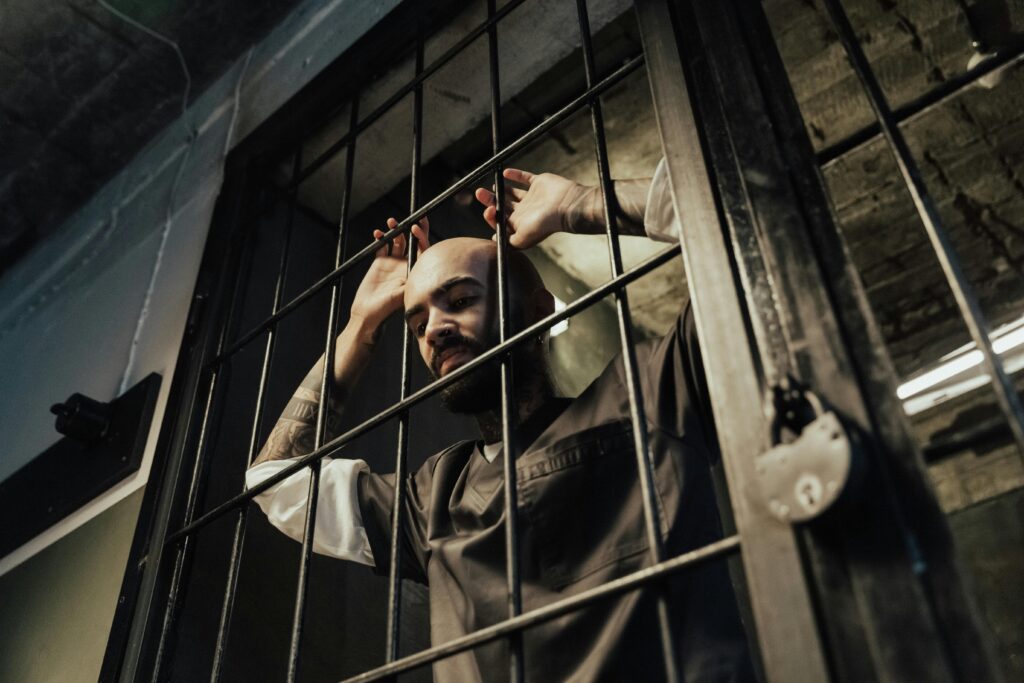Published On: September 04th 2025
Authored By: Riya Sharma
Maharishi Dayanand University, Gurugram
INTRODUCTION
The criminal justice system has constantly wrestled with the balance between effective investigation and protection of individual rights the case of Amlesh Kumar vs state of Bihar [1]is a significant step in reaffirming the constitutional boundaries surrounding investigative methods such as narco-test. This case deals with the important issue deciding legality of conducting a Narco-Test on an accused person during investigation stage, where high court granted narco-test, the main question before the supreme court was whether such test can be conducted on accused without their consent and whether the high court was right to allow a narco-test on such accused and lastly whether it violates the fundamental right of the accused.
CASE TITLE:- Amlesh Kumar V. State of Bihar
CITATION:- Amlesh Kumar v. State of Bihar, 2025 INSC 810
COURT: – Supreme Court of India
BENCH: – Justice Sanjay Karol and Justice P.B Varale
DATE OF JUDGEMENT:- 9th June 2025
RELEVANT STATUTUES PROVISIONS
- Article 20(3) of the Constitution of India- (protection against self-incrimination)
- Article 21 of the Constitution- Right to Personal Liberty and Dignity
- Section 27 of Indian Evidence Act, 1872- discovery of facts based on a statement
- Section 161, 164 CrPC statements during investigation
BRIEF FACTS
Amlesh Kumar who is an applicant here, his wife was missing on 22nd august 2022 her family lodged a complaint against amlesh alleging that she had been subjected to cruelty and harassment by her husband and in-laws. Based on the complaint, an FIR was registered against Amlesh Kumar which suggested that her disappearance might be linked to dowry-related cruelty. Amlesh Kumar was taken into custody and his bail application was pending before The Patna High Cour. The prosecution then sought Narco-test on accused and co-accused which the high court permitted, Amlesh Kumar approached Hon’ble Supreme Court of India stating that by this test his fundamental right violated.
ISSUES INVOLVED
- Can a High Court direct narco-test during a bail hearing?
- Is narco-test without consent constitutional?
- Can voluntary narco-test results be used as evidence?
- Do accused person have the right to demand narco-test?
PETITIONER’S ARGUMENTS (Applicant)
The petitioner, Amlesh challenged the order of the Patna high court which had allowed the narco-test during hearing of bail application. The applicant contented that that such order was illegal and direct violation of his fundamental right guaranteed under The Constitution of India. One of the primary arguments made by the petitioner is that the order of high court violated Article 20(3) of Constitution which protects accused person from being compelled to be a witness against himself. Such test put the person in semi-conscious or hypnotic state during which responses are recorded by investigating officers.
The petitioner also argued that such responses are not made voluntarily or with full awareness and therefore compelled testimony which is prohibited under article 20(3) of Indian Constitution.
Petitioner also contends that it invokes article 21 which guarantees the right to life and personal liberty including right to mental and bodily privacy. He stated that subjecting to a person to drug induced tests without their consent violates bodily integrity and mental dignity.
It is also asserted by the petitioner that this action was the violation of procedural safeguard laid down by the Supreme Court in Selvi v State of Karnataka[2] which is a landmark judgement in which the court held that narco-test can be conduct with the consent of the accused.
Lastly the petitioner contented that high court had overstepped it jurisdiction by allowing such invasive test at the bail stage. The petitioner urged to the Supreme Court to quash the high court’s order and to protect his constitutional rights.
RESPONDENT ARGUMENT
The State of Bihar, representing the prosecution and defended The Patna High Court that permitted narco-analysis to be conducted on Amlesh Kumar. The state argued that these tests were essential for conducting an effective investigation in case which involve serious allegation on accused such as dowry death, the prosecution also highlighted that the accused has been charged for serious sections such as- section 302B, 498A, 201, 120B and 34 of The Indian Penal Code.
The prosecution contended that the whereabouts of accused’s wife were remain unknown and interrogation methods failed in such condition using scientific method like narco-test can be helpful and necessary to uncover the truth to give justice to victim’s family.
The state argued that narco-test is not inherently coercive if conducted with proper safeguards it is also stated that the test was not being ordered to secure confession or to bypass the legal process but to discover facts that could aid to the investigation or to be known about the whereabout of the victim.
The prosecution further argued that there was no violation of accused’s fundamental right because no coercive test had been performed yet they assured that when the process of such test about to begin all procedural safeguards must be performed such as obtaining consent, medical test etc.
Lastly the state argued that allowing narco-test did not mean automatic admissibility of its results as evidence. It merely meant using test to generate leads which could be later to corroborated by admissible evidence. The prosecution urged to The Supreme Court to give direction for conducting the narco-test in the interest of justice for effective investigation.
JUDGEMENT
The Hon’ble Supeme Court of India set aside the High Court’s order to conduct naro-test. The court also held that narco-test cannot be conducted involuntarily and without consent it and the High Court should not have ordered such a test at the bail stage. The court referred to landmark judgement of Selvi v. Karnataka and emphasized rights against self-incrimination. The bench In Amlesh Kumar clarified that the accused may request a test “an apology stage” which is “when the accused is exercising his right to lead evidence in trial. However, it is also noted that this right is not “indefeasible” the court must consider the “totality of circumstances”[3]
RATIO DECENDI
Narco-test, brain mapping and lie detector tests without consent violates article 20(3) and 21 of The Indian Constitution, even if the person himself agrees the such tests are only corroborative piece of evidence and not a conclusive proof of guilt. Courts cannot treat them as main evidence.
OBITER DICTA
Other observation of court such as the courts should be cautious while using such investigative techniques and individual’s right to human dignity must be balanced with the interest of justice. Court also observed that the use of such scientific techniques must be in line with human rights and guidelines and the consent must be “informed” and “Voluntary” and medically safe. In this case, the court emphasized that the narco-test and other scientific test such as polygraph and lie detector must strictly follow the NHRC guidelines[4] to protect the rights of accused. These guidelines requires that the accused must give free consent and his consent must be recorded before judicial magistrate and such person must also be medically fit which is certified by a doctor. The narco-test must be conducted by an independent team of experts and results cannot be treated as direct evidence unless they lead to discovery of a new fact.
FINAL DECISION
Hence The Supeme Court of India finally Cancelled the Patna High Court’s order allowing narco-test and directed the High Court to hear the bail matter without considering narco-test. The Court reaffirmed that involuntary narco-test are unconstitutional and if it is voluntary then safeguards must be followed.
REFERENCES
[1] Amlesh Kumar v. State of Bihar, 2025 INSC 810
[2] Selvi v. State of Karnataka & Anr, AIR 2010 SC 1974 SCC 263
[3] Gauri Kashyap “The Right to Truth (serum)” (Supreme Court Observer, 23 June 2025
[4] National Human Rights Commission, India, “Guidelines on Administration of Lie Detector Test (NHRC, 16 May 1997)




